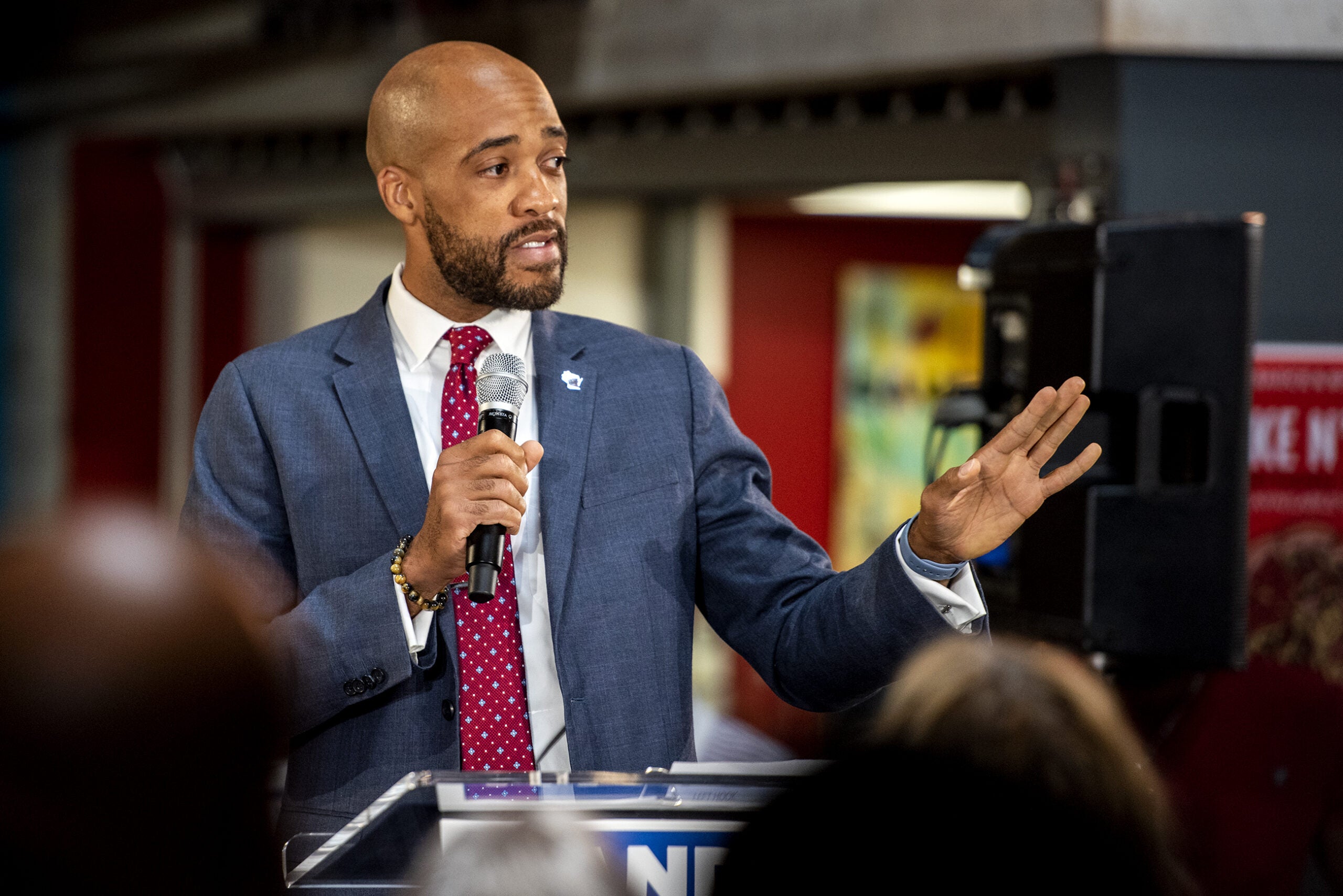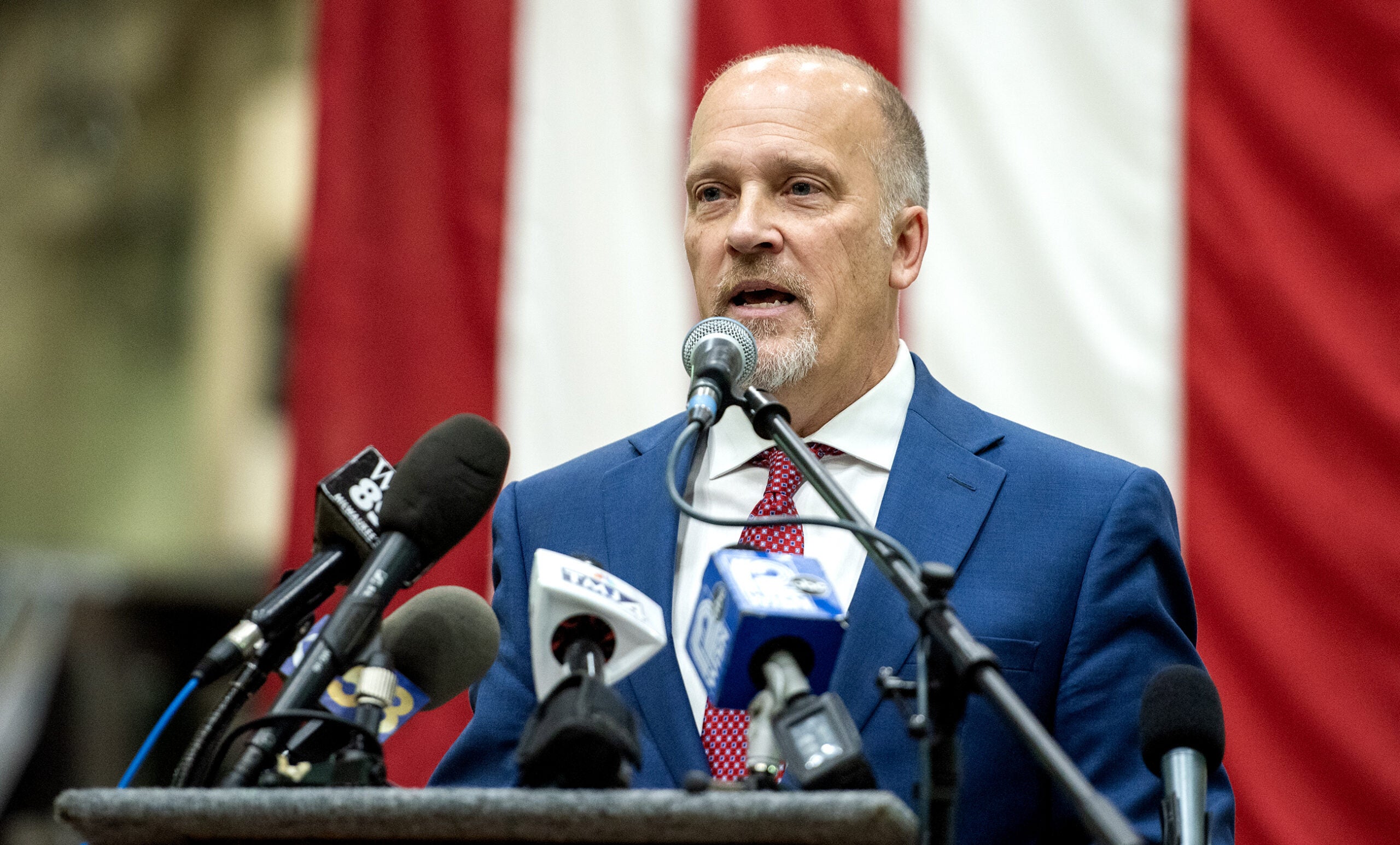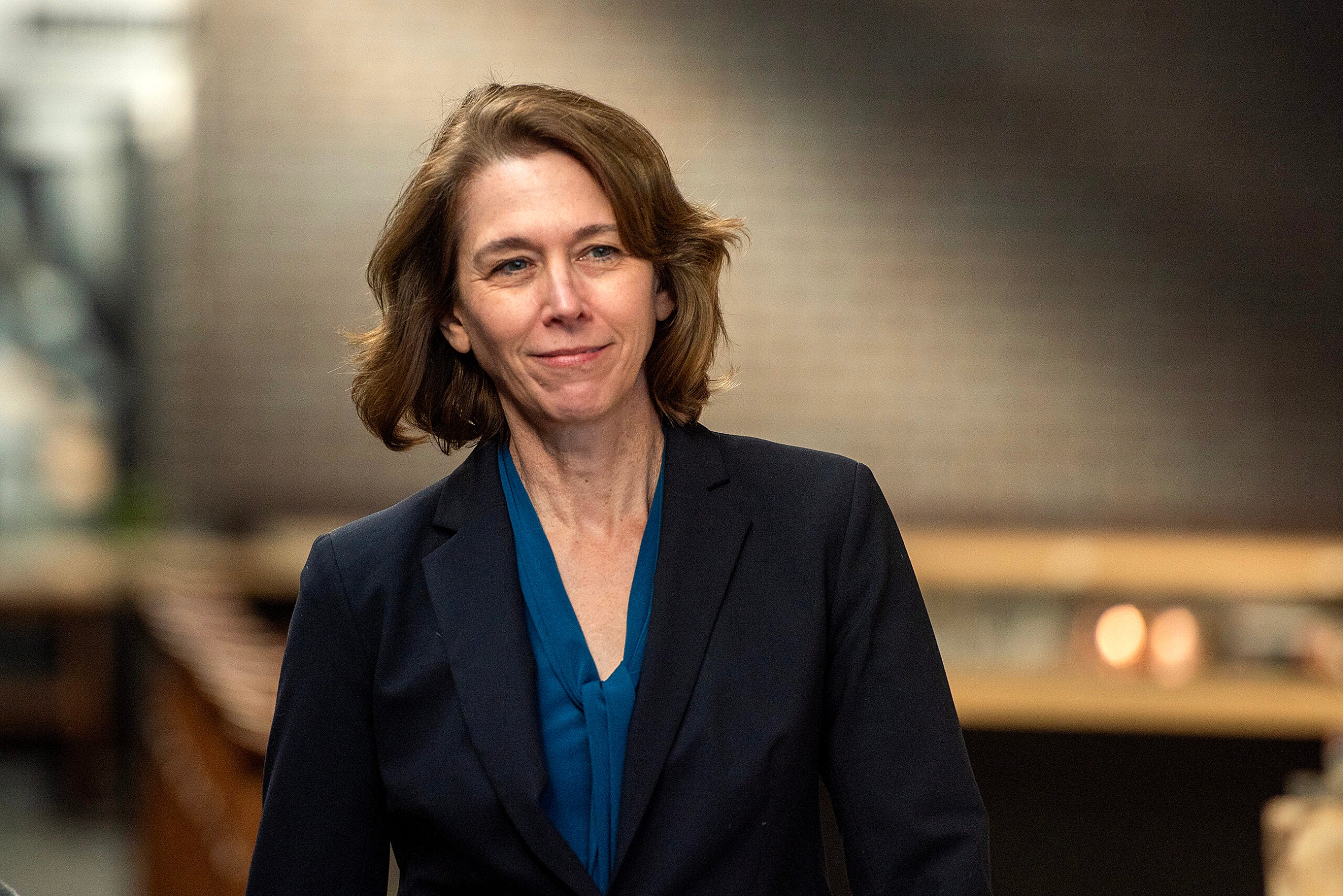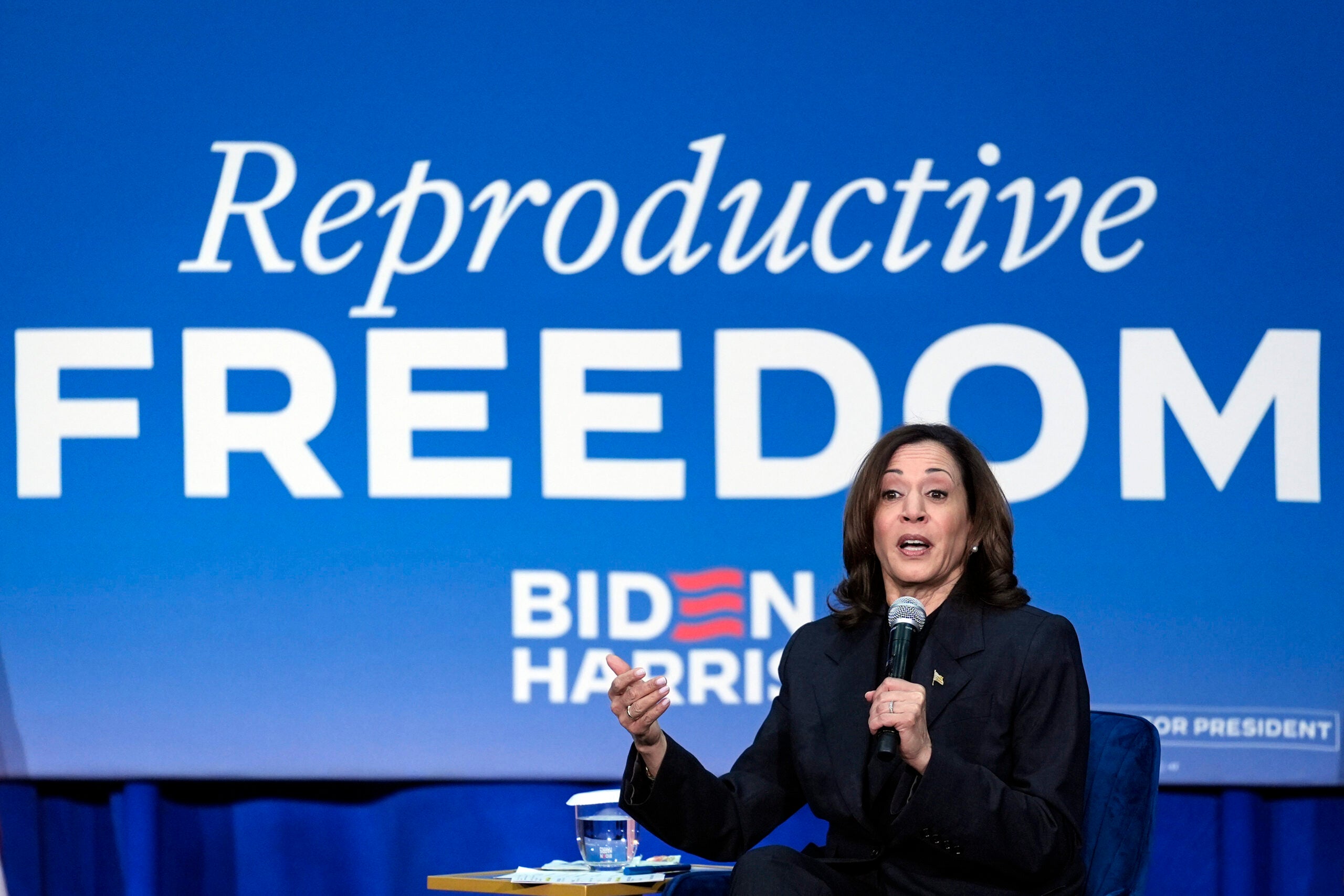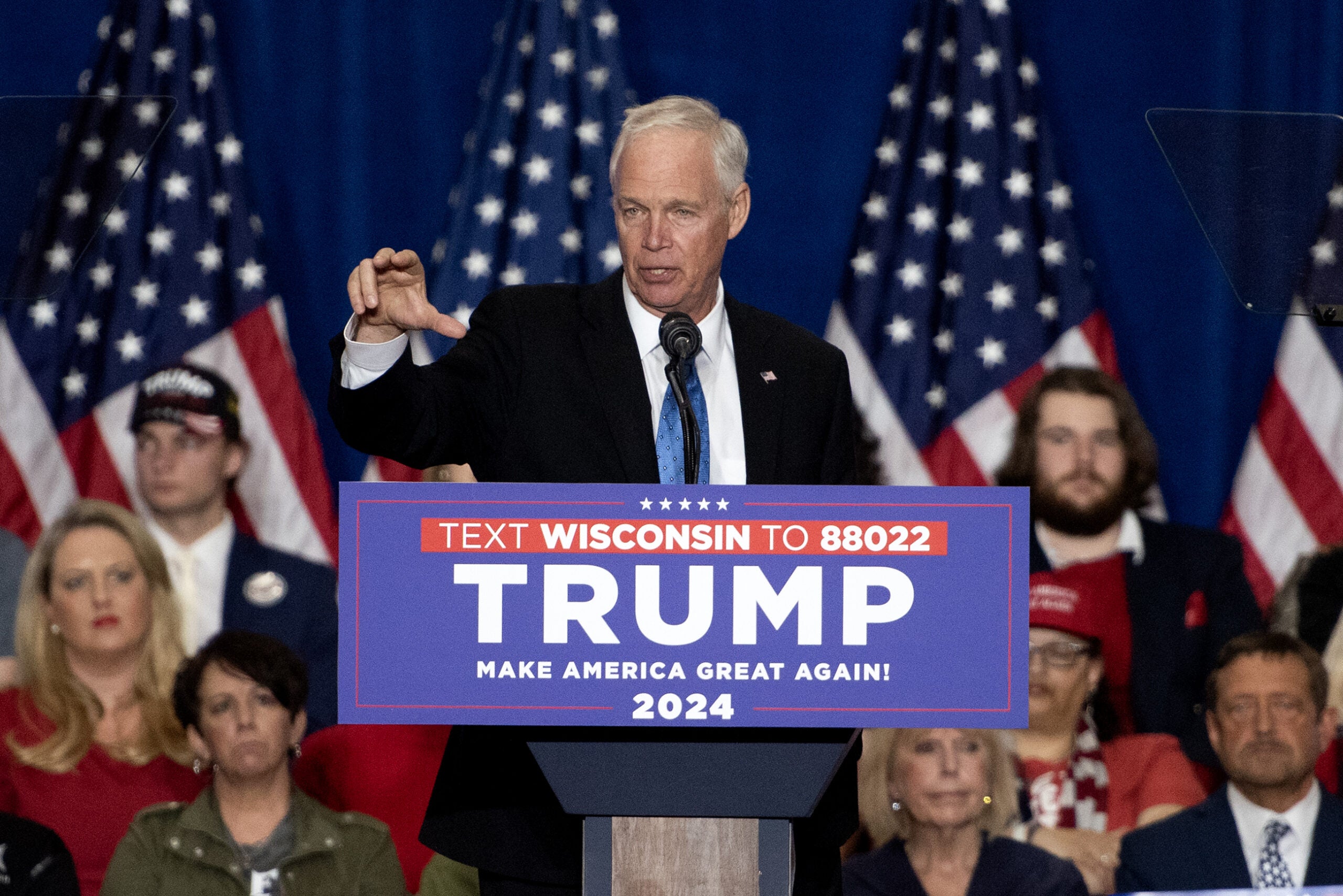With five weeks until the midterm elections, Wisconsin’s top Democrats are renewing their push to make abortion policy the defining issue in the races for governor and U.S. Senate.
On Saturday, Lt. Gov. Mandela Barnes’ U.S. Senate campaign launched a “Ron Against Roe” tour in Green Bay with more stops planned for Milwaukee, Racine, Madison and Eau Claire. The Barnes team has said the tour is aimed at “holding Ron Johnson accountable for his record of working to rip away Wisconsinites’ ability to access abortion.”
Gov. Tony Evers, meanwhile, has called a special session of the Wisconsin Legislature for Tuesday to consider an amendment to the state constitution that the governor said would “create a pathway” to repealing the state’s 1849 law banning most abortions.
Stay informed on the latest news
Sign up for WPR’s email newsletter.
The push comes as Republican U.S. Sen. Ron Johnson and Republican candidate for governor Tim Michels continue to pummel Barnes and Evers with TV ads attacking them as soft on crime. In the U.S. Senate race, Johnson and his GOP allies have highlighted Barnes’ past comments on shifting police funding toward community services, while Michels has attacked Evers for the Wisconsin Parole Commission’s decision to grant parole to hundreds of eligible prisoners since the governor took office.
There are signs those GOP ads may have influenced both races. Recent polling by Marquette University, FOX News, Emerson and AARP showed Johnson pulling slightly ahead of Barnes in September. Recent polls showed the governor’s race closer but moving in Michels’ direction.
University of Wisconsin-La Crosse associate professor of political science Kristina LaPlant said political psychology research shows that fear- or anger-based messages are more likely to leave an impression in the minds of voters than positive ones.
“What I think you’re seeing now is Democrats really trying to co-opt that strategy a bit more, particularly with issues that are just so central to the Democratic Party, such as women’s right to choose and reproductive rights,” LaPlant said.
The “Ron Against Roe” tour coincides with a new Barnes TV ad attacking Johnson for supporting a ban on abortion.
“He co-sponsored a bill that makes no exceptions for rape, incest or the life of the woman,” said the ad.
Planned Parenthood’s political spending wing also announced a six-figure advertising buy in Wisconsin with an ad titled “Fight Back.”
“The right to abortion shouldn’t be up for debate, and it definitely shouldn’t be up to Ron Johnson,” proclaimed the commercial.
In an emailed statement, Johnson campaign spokesperson Mike Marinella said Barnes’ new attacks show he’s “desperate to change the narrative from his soft-on-crime record so he’s scurrying to his allies in the media and begging them for help.”
“Nothing new has happened on this issue in weeks, but the liberal press is happily carrying water for Barnes’ campaign instead of talking about his statements in favor of defunding the police or even bothering to pin down his specific position on the issues he is campaigning on,” Marinella said.
In the governor’s race, Democrats have also attacked Michels for his long record of opposition to abortion, including stating this year that the state’s abortion ban mirrors his own views.
Evers said he got the idea to call his latest special session from Johnson, who told the Milwaukee Journal Sentinel last month that he supports adding rape and incest exceptions to Wisconsin’s abortion ban. Johnson suggested the law should be changed via “direct referendum,” which isn’t possible without changing the Wisconsin Constitution. Evers’ proposal, which Republicans are expected to reject Tuesday, would do just that.
Chuck Chvala, a longtime Democratic strategist who was once the state Senate’s majority leader, said he doesn’t feel current polling is reflective of how voters are really thinking about the abortion issue. He said elections in Wisconsin “are decided in the last couple of weeks” and believes a redoubled effort to attack Johnson and Michels for their abortion views can make a difference in the state’s two highest-profile elections in November.
“The bottom line, this is more important than all the other minor issues that are out there, most of which have very little to do or are not within the control of either a U.S. senator or governor,” Chvala said. “But what is within their control is to give women back their reproductive rights. And I think it will be a very powerful issue.”
Wisconsin Public Radio, © Copyright 2025, Board of Regents of the University of Wisconsin System and Wisconsin Educational Communications Board.
